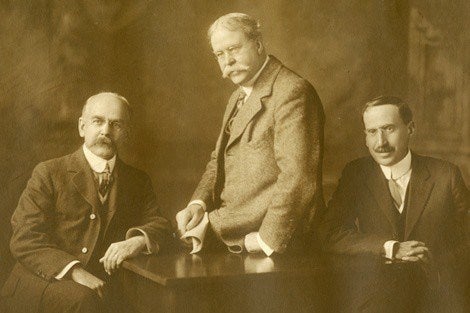“I met [Harvard University] President Lowell today at lunch at the Colonial Club. He asked me to think up some plan for having my department cooperate with the Massachusetts Institute of Technology in a course for public health officers.”
In these unprepossessing words, from a March 4, 1912 diary entry, Harvard Professor of Sanitary Engineering George C. Whipple recorded the modest beginnings of Harvard School of Public Health.
Whipple moved quickly, making overtures to M.I.T.’s William Sedgwick, a renowned biologist, and Harvard Medical Professor Milton Rosenau, head of the Department of Preventive Medicine and Hygiene. On September 29, 1913 – just over 18 months after that first meeting – the first formally organized school of public health in the United States opened its doors to a grand total of eight students.
The early years of the 20th century saw a renaissance in public health, with enormous strides in areas including sanitation, food safety, and preventive medicine. No small part of the era’s progress can be traced to the groundbreaking work of the School’s founding triumvirate—Whipple, Rosenau and Sedgwick—to whom Centennial Moments will turn in the weeks ahead.
These early pioneers could not have imagined what the future held, but we like to think they’re with us in spirit as HSPH turns 100.
Is there an event, person, or discovery in Harvard School of Public Health history that you’d like to read about? Send your suggestions to centennial@hsph.harvard.edu.
